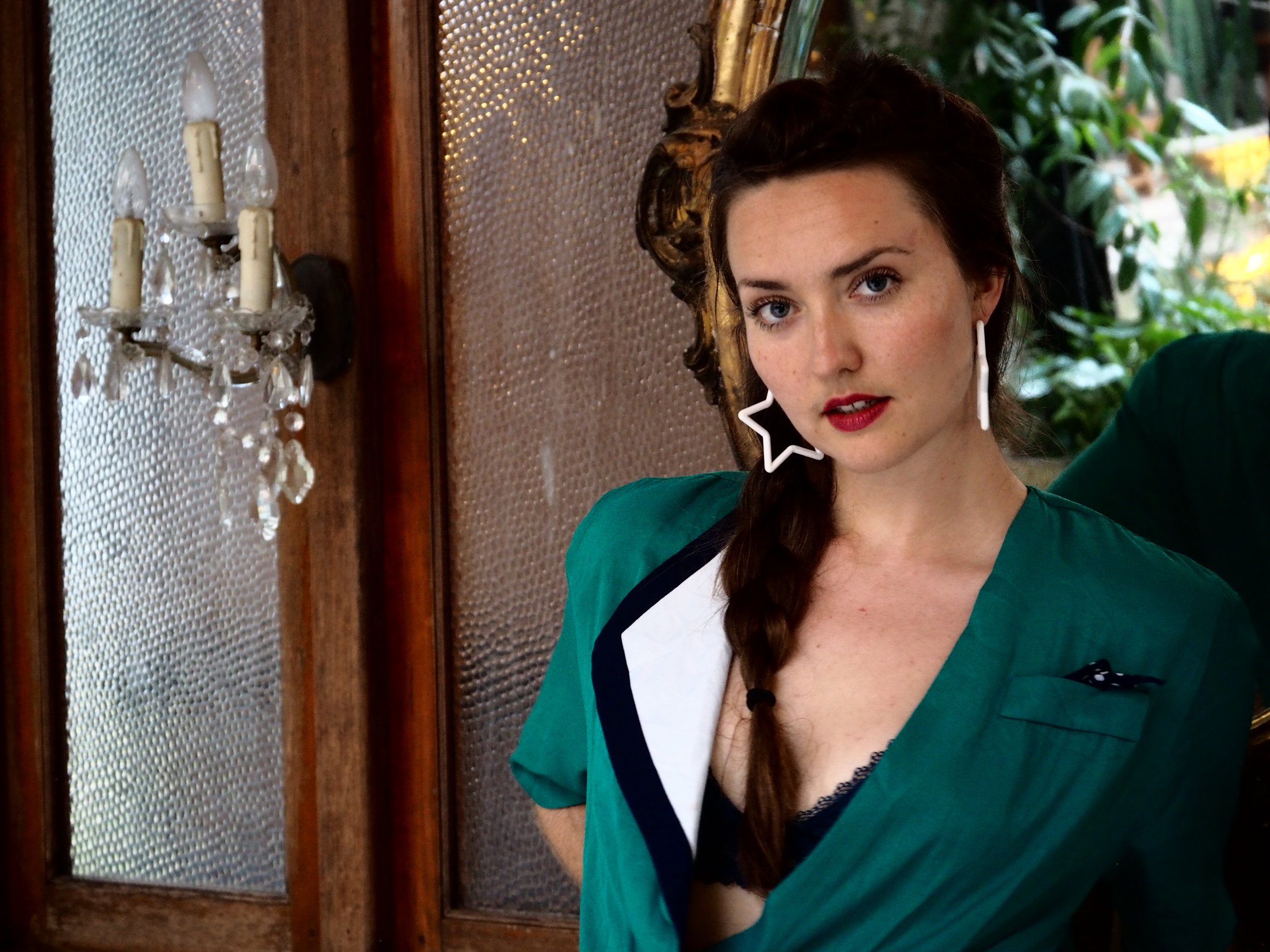Valerie June Finds Her Music

Learning to play guitar helped the singer find the music that spoke to her.
That’s a funny question you writers like to ask,” singer Valerie June says when asked what she listened to when she grew up. The question isn’t as trivial as it sounds. On her Dan Auerbach-produced album Pushin’ Against a Stone, she plays a broad brand of roots music that embraces acoustic blues, folk, soul and Afrobeat - an eclectic blend that seems unlikely for someone to hear growing up in small town Tennessee before moving to Memphis when she was 18.
“Everything you can think of,” she says. “We live in America where there’s all kinds of music right there at your fingertips. If you like music, you listen to it all. If you go to the grocery store, you go to the gas station - wherever you go, they’re playing music. Even if you don’t want to hear it, you’ve got to hear it. If you’re a singer, you find yourself singing a song and saying, ‘Why am I singing that song? I don’t even like it. ”
Valerie June will play the House of Blues Saturday night opening for Sharon Jones and The Dap-Kings, and while driving to Orlando, Florida between gigs she laughs at that thought.
To a great degree, her music is a direct result of learning to play guitar in her 20s. She decided to start with the basics, and to do that she taught herself traditional folk songs. “If I can get the G-C-D down, then I can build a foundation and grow. I thought, ‘Oh lord, it’s going to take me my entire life to get these basics down.’ That was my plan. You’ve got to have a plan, then throw it away.”
The songs that she picked up as learning tools stayed with her, though. Songs with stories appeal to her, “and they tell such great stories,” she says. She stuck with the acoustic guitar because Tracy Chapman made her fall in love with the sound of the instrument. It was reinforced when a high school art teacher played while the class created. “It was the thing of always having this delicate, woody sound always around,” she says. “This soft sound.” But she’s not philosophically married to the acoustic.
“There’s always time to learn the electric guitar,” she says, laughing.
Playing an electric guitar would be less frustrating for June. PAs have not proven to be her friend as she struggles from night to night to get her guitar to sound right without feeding back, and she’s not fond of the way her voice sounds different from venue to venue. “It drives me crazy,” she says. “Can machines just get the same sound? Can’t they all sound the same, like an acoustically perfect church? That’s what I want to sound like night after night.”
As Pushin’ Against a Stone makes clear, Valerie June doesn’t have a conventional voice. It sounds like it could come from a teenager or an old woman. It’s clearly southern with some occasional gravel and a hint of squeak. Like the songs on the album, it can simultaneously be heard as traditional and old or contemporary and youthful, and it always sounds personal.
“I knew that my voice was different,” she says, so much so that a former band member complained that she was pitchy and “terrible.” Needless to say, she moved on, but it wasn’t always easy. “I had to embrace my own voice. I sound like I sound, and it’s not the average thing on the radio. I had to be okay with that.”
Part of the process of making peace with her voice came when she met blues guitarist Robert Belfour. Valerie June was a fan and saw him whenever she could. Eventually, she asked him if he’d play a song with her, but he refused. “He said, ‘I can’t do a song with you. I do what I do. I don’t do what nobody else does. Nobody else in this world does what I do. I’m going to let you do what you do, and I’ll do what I do.’
“That was a sweet way for me to learn that even if you’re a rudimentary musician playing basic chords, nobody’s going to play them the way you play them,” she says. “They’re not going to put their voice down the way you put the voice down. That’s what makes it special. That’s what makes it your music.”






